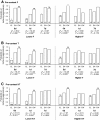Winner and loser effects are modulated by hormonal states
- PMID: 23399457
- PMCID: PMC3598835
- DOI: 10.1186/1742-9994-10-6
Winner and loser effects are modulated by hormonal states
Abstract
Introduction: Many animals use information acquired from recent experiences to modify their responses to new situations. Animals' decisions in contests also depend on their previous experience: after recent victories individuals tend to behave more aggressively and after defeats more submissively. Although these winner and/or loser effects have been reported for animals of different taxa, they have only recently been shown to be flexible traits, which can be influenced by extrinsic factors. In a mangrove killifish (Kryptolebias marmoratus), for instance, individuals which lost an earlier contest were more likely than others to alter contest decisions after a recent win/loss. This result suggests that individuals perceiving themselves to have worse fighting abilities are more inclined to adjust contest strategy based on new information. If this is the case, an individual's propensity to modify behaviour after a win/loss might also be modulated by intrinsic mechanisms related to its ability to fight. Stress and sex steroid hormones are often associated with an individual's contest behaviour and performance, so, in this study, we tested the hypothesis that an individual's propensity to change behaviour after wins or losses also depends on its hormonal state.
Results: Our results show that an individual's propensity to adjust contest decisions after wins and losses does depend on its hormonal state: individuals with lower levels of cortisol (F), testosterone (T) and 11-ketotestosterone (KT) are more receptive than others to the influence of recent contest experiences, especially losing experiences, and the influences last longer. Furthermore, although winning and losing experiences resulted in significant changes in behaviour, they did not bring about a significant change in the levels of F, T, KT or oestradiol (E2).
Conclusions: This study shows that an individual's receptivity to the influence of recent wins and losses is modulated by its internal state, as well as by extrinsic factors. Individuals with hormonal profiles corresponding to lower aggressiveness and a reduced likelihood of winning were more likely to alter contest decisions after a recent win/loss. The results also suggest that F, T, KT and E2 are not the primary physiological mechanisms mediating winner-loser effects in this fish.
Figures






Similar articles
-
Winner-loser effects overrule aggressiveness during the early stages of contests between pigs.Sci Rep. 2020 Aug 7;10(1):13338. doi: 10.1038/s41598-020-69664-x. Sci Rep. 2020. PMID: 32770010 Free PMC article.
-
Opponent familiarity and contest experience jointly influence contest decisions in Kryptolebias marmoratus.Front Zool. 2014 Dec 10;11(1):92. doi: 10.1186/s12983-014-0092-7. eCollection 2014. Front Zool. 2014. PMID: 25530793 Free PMC article.
-
Multiple contest experiences interact to influence each other's effect on subsequent contest decisions in a mangrove killifish.Anim Cogn. 2014 Mar;17(2):165-75. doi: 10.1007/s10071-013-0649-4. Epub 2013 Jun 13. Anim Cogn. 2014. PMID: 23760869
-
Modulation of aggressive behaviour by fighting experience: mechanisms and contest outcomes.Biol Rev Camb Philos Soc. 2006 Feb;81(1):33-74. doi: 10.1017/S146479310500686X. Biol Rev Camb Philos Soc. 2006. PMID: 16460581 Review.
-
Using knowledge from human research to improve understanding of contest theory and contest dynamics.Proc Biol Sci. 2017 Dec 20;284(1869):20172182. doi: 10.1098/rspb.2017.2182. Proc Biol Sci. 2017. PMID: 29237857 Free PMC article. Review.
Cited by
-
Winner-loser effects overrule aggressiveness during the early stages of contests between pigs.Sci Rep. 2020 Aug 7;10(1):13338. doi: 10.1038/s41598-020-69664-x. Sci Rep. 2020. PMID: 32770010 Free PMC article.
-
Pupil size variation as a response to stress in European catfish and its application for social stress detection in albino conspecifics.PLoS One. 2020 Dec 31;15(12):e0244017. doi: 10.1371/journal.pone.0244017. eCollection 2020. PLoS One. 2020. PMID: 33382718 Free PMC article.
-
Behavioral and endocrine responses to noninteractive live and video conspecifics in males of the Siamese fighting fish.Curr Zool. 2022 Oct 8;69(5):568-577. doi: 10.1093/cz/zoac078. eCollection 2023 Oct. Curr Zool. 2022. PMID: 37637314 Free PMC article.
-
Opponent familiarity and contest experience jointly influence contest decisions in Kryptolebias marmoratus.Front Zool. 2014 Dec 10;11(1):92. doi: 10.1186/s12983-014-0092-7. eCollection 2014. Front Zool. 2014. PMID: 25530793 Free PMC article.
-
Emergence of size-structured dominance hierarchies through size-dependent feedback.Philos Trans R Soc Lond B Biol Sci. 2022 Feb 28;377(1845):20200449. doi: 10.1098/rstb.2020.0449. Epub 2022 Jan 10. Philos Trans R Soc Lond B Biol Sci. 2022. PMID: 35000447 Free PMC article.
References
-
- Rebar D, Zuk M, Bailey NW. Mating experience in field crickets modifies pre- and postcopulatory female choice in parallel. Behav Ecol. 2011;22:303–309. doi: 10.1093/beheco/arq195. - DOI
-
- Devenport LD, Devenport JA. Time-dependent averaging of foraging information in least chipmunks and golden-mantled ground squirrels. Anim Behav. 1994;47:787–802. doi: 10.1006/anbe.1994.1111. - DOI
-
- Whitehouse MEA. Experience influences male-male contests in the spider Argyrodes antipodiana (Theridiidae:Araneae) Anim Behav. 1997;53:913–923. doi: 10.1006/anbe.1996.0313. - DOI
LinkOut - more resources
Full Text Sources
Other Literature Sources
Molecular Biology Databases
Miscellaneous

